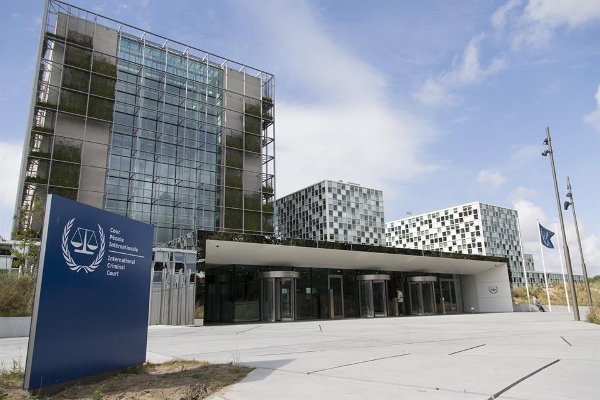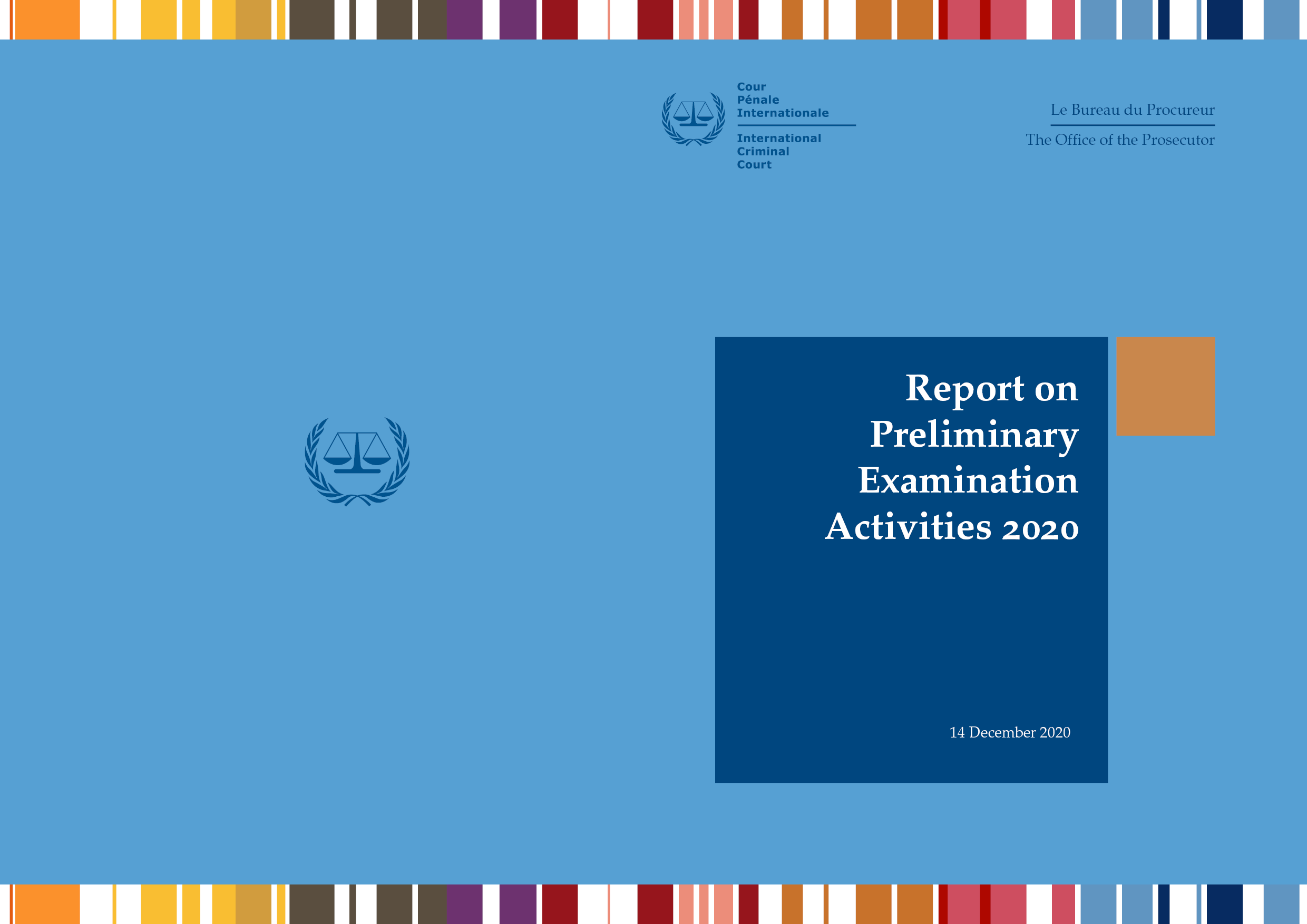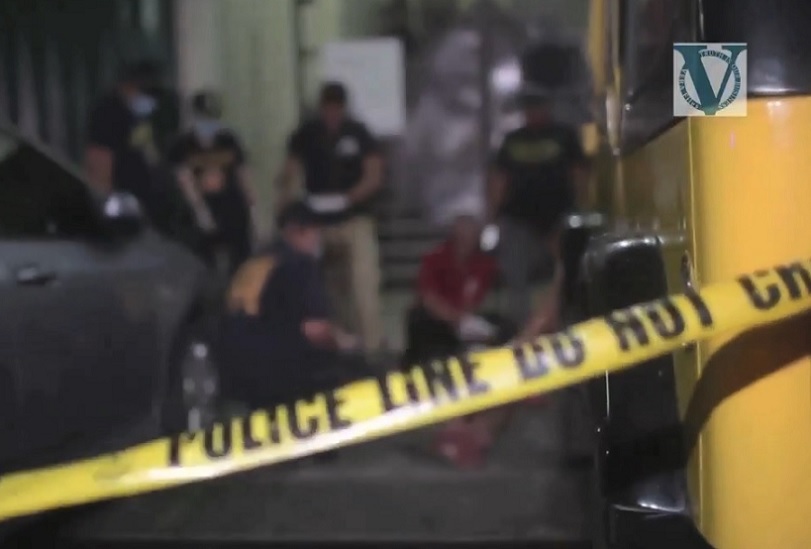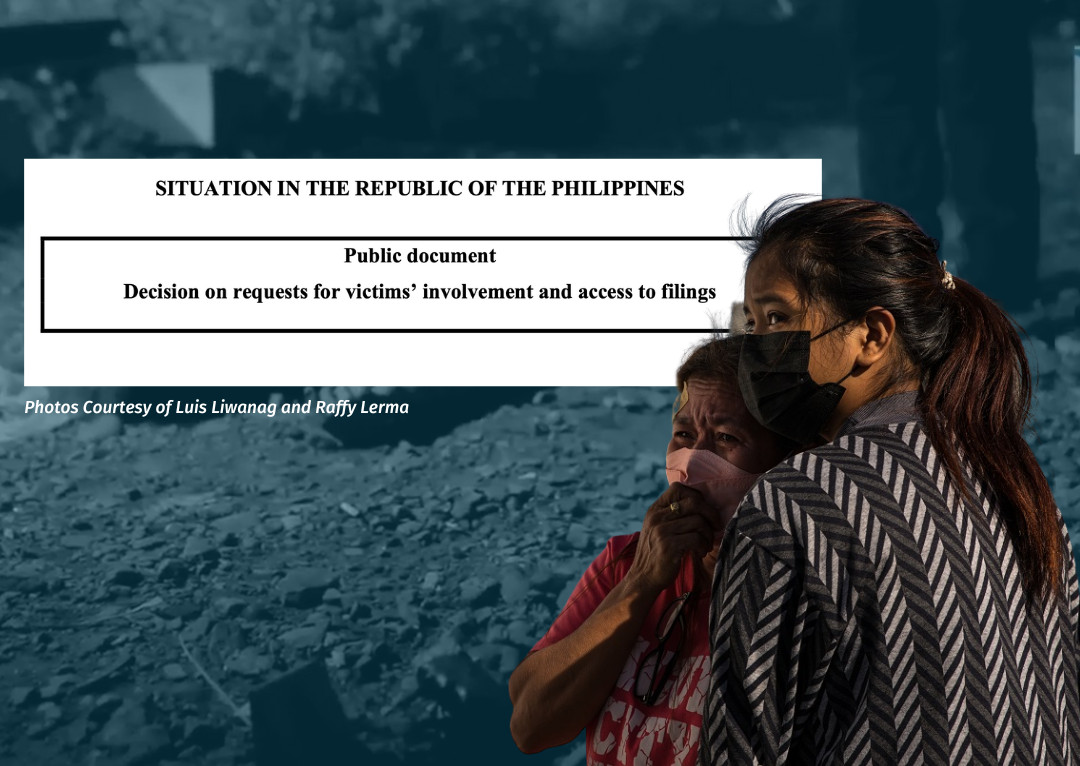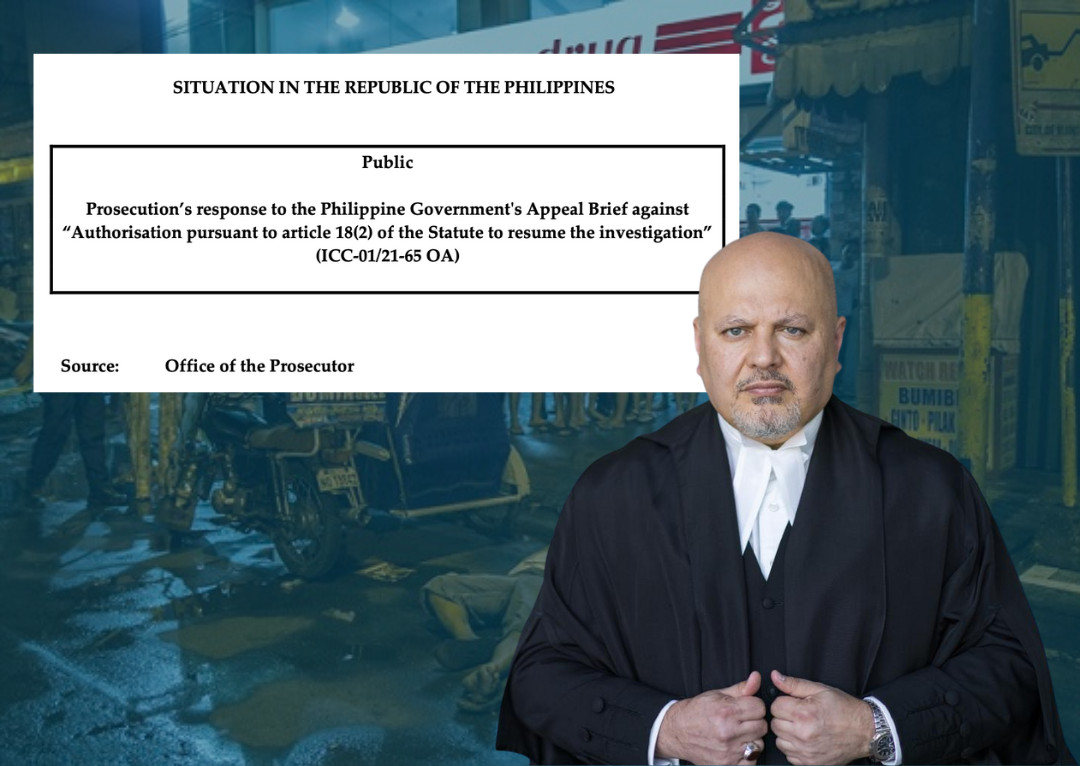The International Criminal Court (ICC) said it expects to decide “in the first half of 2021” whether to pursue an investigation into alleged crimes against humanity committed in President Rodrigo Duterte’s war on illegal drugs.
In its 2020 report on preliminary examination activities released on Dec. 14, the Office of the Prosecutor (OTP), led by Fatou Bensouda, of the Netherlands-based ICC said that it “anticipates” reaching a decision in the first half of 2021.
The OTP launched the preliminary examination into crimes against humanity perpetrated under the Duterte administration’s deadly drug war in February 2018 after receiving a number of communications and reports.
The government’s latest count of drug-related deaths from anti-drug operations has reached 5,942 covering the period July 1, 2016 to Oct. 31, 2020. Human rights groups, however, estimate that the actual count could be three times more.
The preliminary inquiry focused on allegations that Duterte and senior members of law enforcement agencies and other government bodies “actively promoted and encouraged the killing of suspected or purported drug users and/or dealers.”
Here are three things you need to know from ICC’s 2020 update:
1. The OTP is ‘satisfied’ there is ‘reasonable basis to believe’ that crimes against humanity were committed in the drug war
In its 2020 report, Bensouda’s office identified specific crimes against humanity it “believes” to have been committed in the country from July 1, 2016 to March 16, 2019: murder, torture, and infliction of serious physical injury and mental harm as other “inhumane acts.”
Art. 7 of the Rome Statute, the agreement that created the ICC, defines crimes against humanity as any of its specified acts ”when committed as part of a widespread systematic attack directed against any civilian population, with knowledge of the attack.”
The report noted the thousands killed by police in anti-drug operations that Philippine officials claim to be a result of “self-defense” — a narrative “challenged” by “others” who argue that the “use of lethal force was unnecessary and disproportionate under the circumstances.”
It also cited allegations that some individuals had been “subjected to serious ill-treatment and abuses prior to being killed by state actors and other unidentified assailants” and that, in several incidents, relatives of victims “witnessed the killings, thereby sustaining serious mental suffering,” among others.
Lawyer Romel Bagares, one of the trustees of the Philippine Coalition for ICC, said this was the “first time” that Bensouda identified the international crimes allegedly committed in the conduct and context of the war on drugs. (See ICC finds ‘reasonable basis’ for crimes vs humanity in Duterte’s drug war)
2. Bensouda’s office continues to ‘closely monitor’ developments while finalizing ‘admissibility’ of potential cases
Last year, the OTP said it was seeking to “finalize” the admissibility of the potential cases. This meant it had to prove that the cases satisfied the principles of complementarity and gravity, in accordance with Art. 17 of the Rome Statute. (See VERA FILES FACT SHEET: ICC’s preliminary examination update on the drug war, explained)
In the 2020 report, the office said it had “finalized its subject-matter analysis” and was able to collect and assess “open source information on any national proceedings” being conducted by Philippine authorities. It said it had also “collected and analyzed information relevant to gravity.”
Further, the OTP said it had been “following with concern” reports of threats, killings and other measures apparently taken against human rights defenders, journalists and others, including those critical of the anti-drug campaign.
Citing “open source information,” Bensouda’s office noted a “limited number of investigations and prosecutions” initiated at the national level against “direct perpetrators” of crimes related to the war on drugs.
It mentioned, however, the creation of an inter-agency panel tasked to “reinvestigate deaths” in police anti-drug operations announced by Justice Secretary Menardo Guevarra in June 2020. The report said the OTP will “continue to closely monitor developments relating to this body.” (See HR groups question credibility of PH review panel for ‘war on drugs’ killings)
Bensouda’s office also said that “out of an abundance of caution,” it looked into “national developments which appear to fall outside the technical scope of the term ‘national criminal investigations’.” This includes Senate committee hearings on alleged extrajudicial killings, administrative cases against law enforcers allegedly involved in drug war-killings, writ of amparo cases, and cases brought before the Office of the Ombudsman.
3. The 2020 report reaffirmed the ICC’s jurisdiction over Duterte’s war on drugs
The OTP reiterated that the Court “retains jurisdiction” over alleged crimes that took place in Philippine territory from the time the country became party to the Rome Statute in November 2011, up to the effective date of its withdrawal from the treaty in March 2019. (See PH gov’t inaction on 5,000 deaths related to drug war bolsters case vs Duterte in ICC, lawyer says)
The office further said the exercise of the court’s jurisdiction — including the investigation and prosecution of crimes committed within the mentioned period — is “not subject to any time limit.”
What may happen next?
Should the ICC prosecutor find “sufficient evidence” against an individual in its preliminary examination, it may then seek “authorization” from the court’s Pre-Trial Chamber to pursue an investigation. At this stage, a summons or a warrant of arrest may be issued against the accused person to appear before the court for investigation.
A summons is issued to those willing to “cooperate and come to court voluntarily,” while a warrant of arrest (to be enforced by signatories of the Rome Statute) is for instances when there is reason to believe that the suspects will:
- refuse to appear voluntarily in court;
- endanger the proceedings or investigation; or,
- continue committing crimes if not arrested.
The Pre-Trial Chamber will determine if there is sufficient evidence to “establish substantial grounds” in the case to proceed to actual trial. Otherwise, it will either “decide to close the case or ask the prosecution for additional evidence” or amend the charges.
These decisions may still be appealed “under specific conditions and with the judges’ authorization.”
But should the prosecutor conclude that there is no reasonable basis for an investigation, the office is then required to “inform those who have provided the information and make its decision public.”
Art. 15 of the Statute states, however, that this will not “preclude the prosecutor from considering further information” submitted to her regarding the same situation, in light of new facts or evidence.
Sources
International Criminal Court, Report on Preliminary Examination Activities 2020, Dec. 14, 2020
International Criminal Court, Report on Preliminary Examination Activities 2019, Dec. 5, 2019
International Criminal Court, Statement of the Prosecutor of the International Criminal Court, Fatou Bensouda, on opening Preliminary Examinations into the situations in the Philippines and in Venezuela, Feb. 8, 2018
International Criminal Court, How the Court works, Accessed Dec. 15, 2020
International Criminal Court, Rome Statute, Rome Statute of the International Criminal Court, Accessed Dec. 15, 2020
Department of Foreign Affairs, PH Officially Serves Notice to UN of Decision to Withdraw from ICC, March 18, 2018
#RealNumbersPh, #RealNumbersPh Year 4, Nov. 30, 2020
International Criminal Court, Pre-Trial Chamber, Accessed Dec. 15, 2020
International Criminal Court, Policy Paper on Preliminary Examinations, November 2013
(Guided by the code of principles of the International Fact-Checking Network at Poynter, VERA Files tracks the false claims, flip-flops, misleading statements of public officials and figures, and debunks them with factual evidence. Find out more about this initiative and our methodology.)
